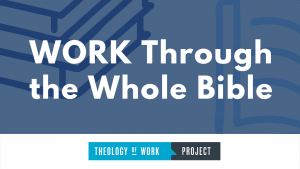57: Dealing with contentious situations at work (Philemon 1:8-22)

Scripture Reading: Philemon 1:8-22
The letter to Philemon tells us that Onesimus was the slave of a Christian named Philemon (Philem. 16). Onesimus apparently escaped, became a Christian himself, and then became an assistant to Paul (Philem. 10–11, 15). Under Roman law, Philemon had the right to punish Onesimus severely. On the other hand, Paul—as an apostle of the Lord—had the right to command Philemon to release Onesimus (Philem. 17–20).
But instead of resorting to a hierarchy of rights, Paul applies the principle of mutuality. He requests that Philemon forgive Onesimus and forego any punishment, while at the same time requesting that Onesimus return voluntarily to Philemon. He asks both men to treat each other as brothers, rather than as slave and master.
We see a three-way application of the principle of mutuality among Paul, Philemon, and Onesimus. Each of them owes something to the others. Each of them has a claim over the others. Paul seeks to have all the debts and claims relinquished in favor of mutual respect and service. Here we see how Paul applies the virtues of compassion, kindness, humility, gentleness, patience, and putting up with each other’s faults in a real workplace situation.
Rather than dictating a solution to Philemon, Paul approaches him with respect, lays out a persuasive argument, and leaves the decision in Philemon’s hands. Paul manages the communication in an artful way that provides a model for resolving issues in the workplace.
Prayer: Lord, give me wisdom to handle difficult and contentious situations with patience, humility, and compassion. Amen.
For Further Exploration: Read Philemon and Work from the Theology of Work Bible Commentary.
Author: Theology of Work Project
Theology of Work Project Online Materials by Theology of Work Project, Inc. is licensed under a Creative Commons Attribution-NonCommercial 4.0 International License. Based on a work at www.theologyofwork.org
You are free to share (to copy, distribute and transmit the work), and remix (to adapt the work) for non-commercial use only, under the condition that you must attribute the work to the Theology of Work Project, Inc., but not in any way that suggests that it endorses you or your use of the work.
© 2014 by the Theology of Work Project, Inc.
Unless otherwise noted, the Scripture quotations contained herein are from the New Revised Standard Version Bible, Copyright © 1989, Division of Christian Education of the National Council of the Churches of Christ in the U.S.A., and are used by permission. All rights reserved.


